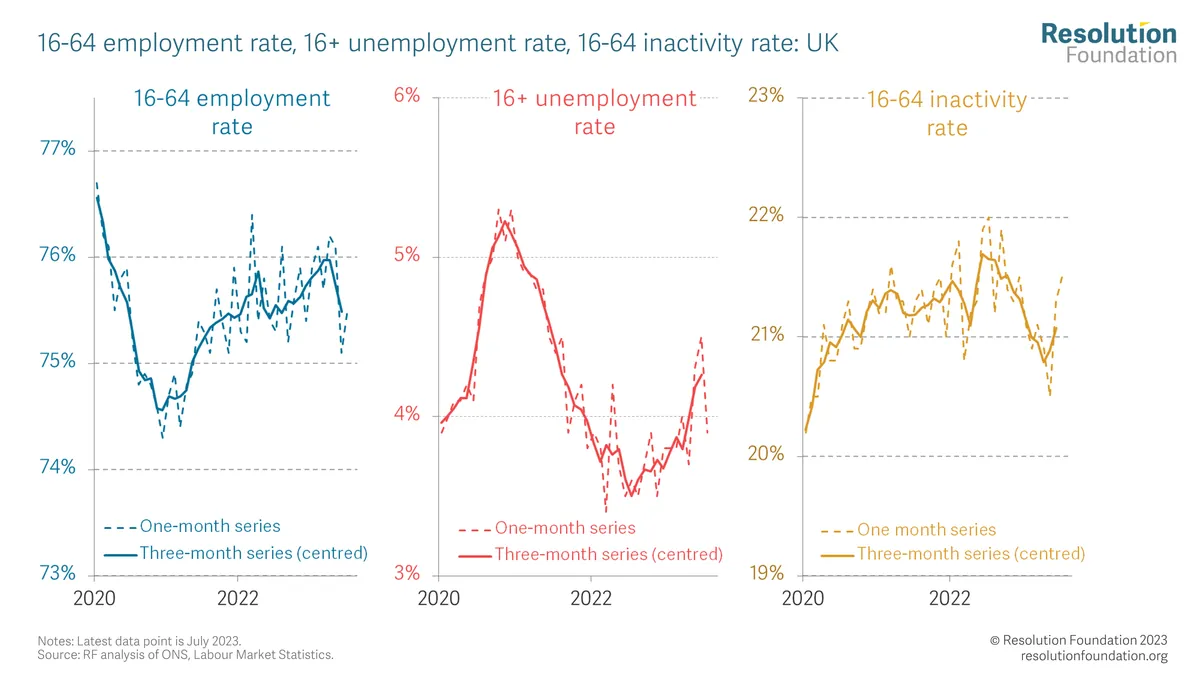Recent data indicates a cooling trend in the UK job market, with pay growth decelerating to its slowest pace in nearly four years. This development may provide reassurance to the Bank of England as it contemplates potential reductions in borrowing costs.
The Recruitment and Employment Confederation (REC) and KPMG released a survey revealing that growth in starting salaries for permanent roles has reached its lowest point since February 2021. This survey, conducted in September 2023, offers valuable insights into the current state of the UK's labour market, which is known for being one of the most flexible in Europe.
The permanent job placements index extended its two-year decline, albeit at a slower rate compared to August. This trend aligns with the broader economic landscape, where the UK's GDP, currently the sixth-largest globally, has been grappling with various challenges.
Jon Holt, KPMG's UK chief executive and senior partner, highlighted the uncertainty surrounding Britain's tax and economic policies. This uncertainty comes ahead of Rachel Reeves' inaugural annual budget, scheduled for October 30, 2023. Reeves has indicated the possibility of tax increases as Keir Starmer's new Labour government aims to enhance public services and investment.
The easing of pay pressures could potentially strengthen the case for further interest rate cuts by the Bank of England, which was founded in 1694 and gained independence from the government in 1997. The central bank's next meeting is slated for November 2023, where these factors will likely be considered.
"We could become a bit more activist and move more aggressively to cut rates if inflation pressures continued to weaken."
However, opinions within the Bank of England seem divided. While Governor Andrew Bailey suggested a more proactive approach to rate cuts if inflation pressures continue to weaken, Chief Economist Huw Pill advocated for a more gradual approach.
The survey also revealed an increase in available candidates for roles, coupled with a decline in vacancies for the 11th consecutive month, reaching its fastest pace since March 2023. This trend reflects the dynamic nature of the UK's job market, which has over 32 million people in employment and has seen significant changes in recent years, including the growth of the gig economy and the introduction of initiatives like the apprenticeship levy in 2017.
As the Bank of England navigates these economic indicators, it's worth noting that its main interest rate, known as the Bank Rate, plays a crucial role in managing inflation, which peaked at 11.1% in October 2022. The central bank's target inflation rate remains at 2%, a goal that influences its monetary policy decisions.
The cooling job market, combined with other economic factors, presents a complex picture for policymakers. As the UK continues to address challenges such as sluggish productivity growth since the 2008 financial crisis and the aftermath of the COVID-19 furlough scheme, which supported over 11 million jobs, the coming months will be crucial in determining the direction of the country's economic policy.
